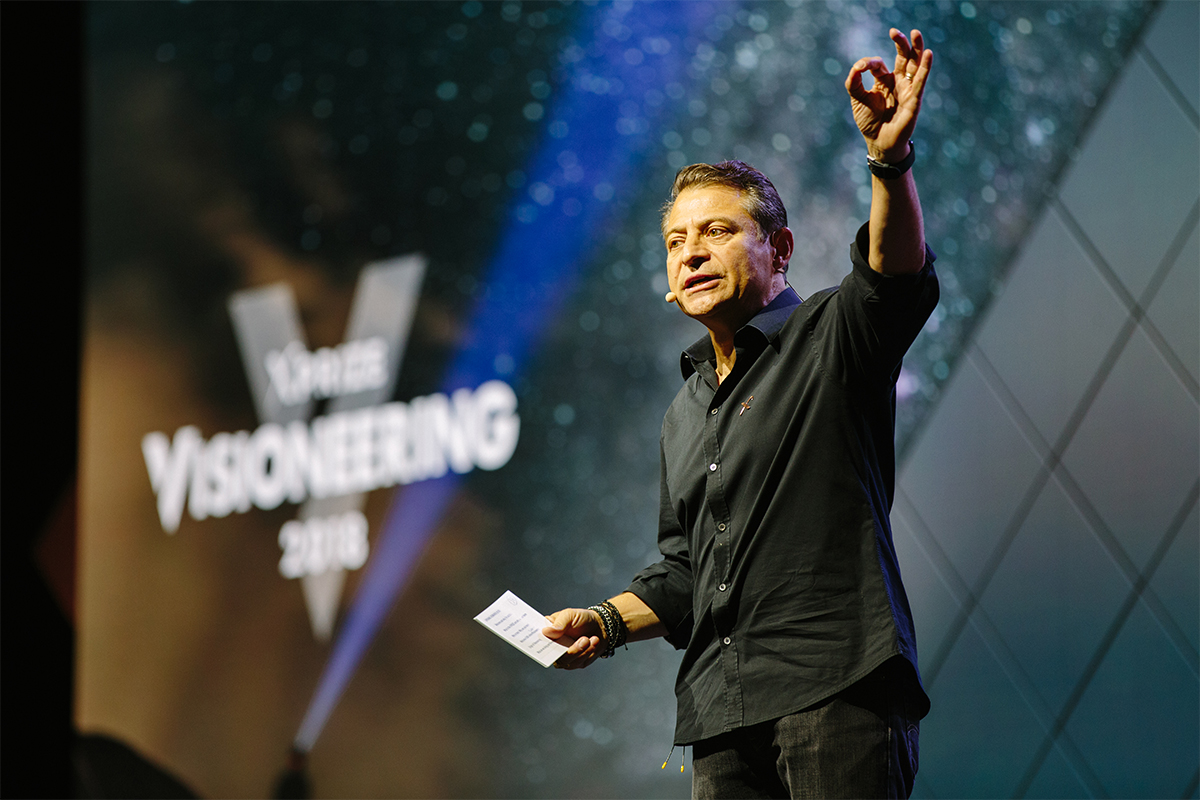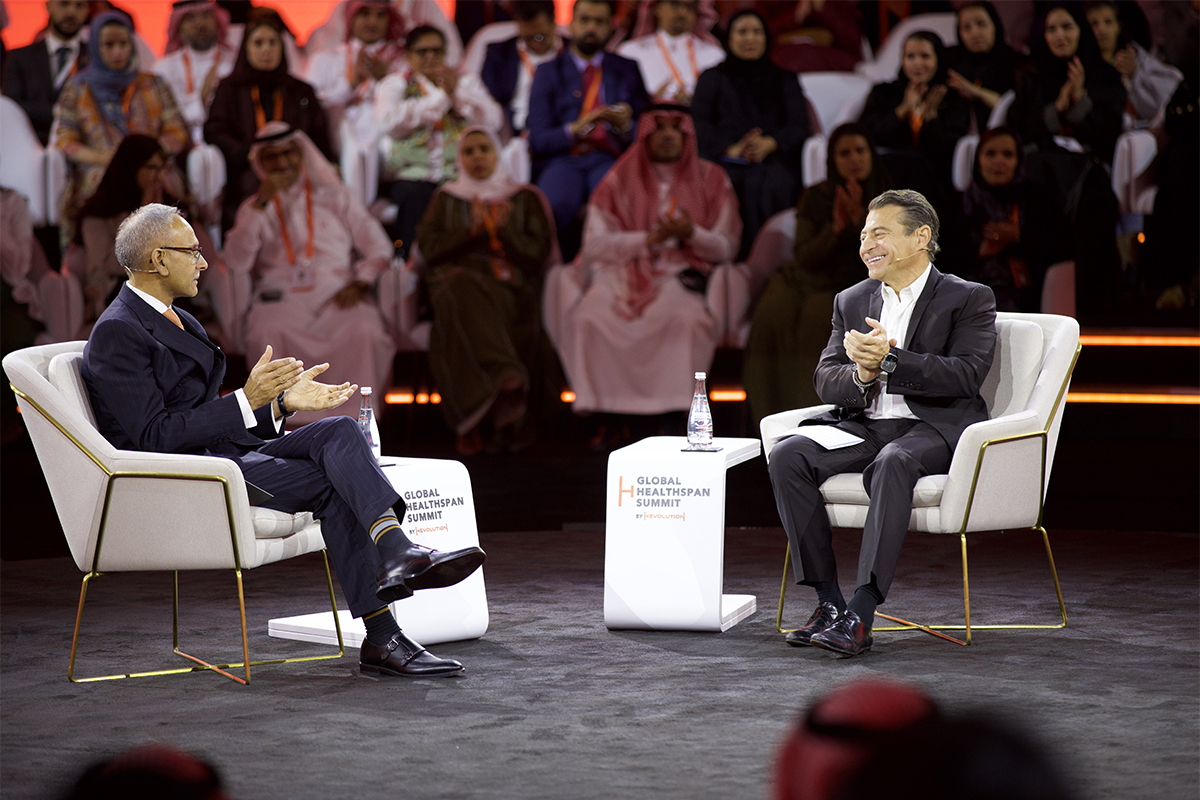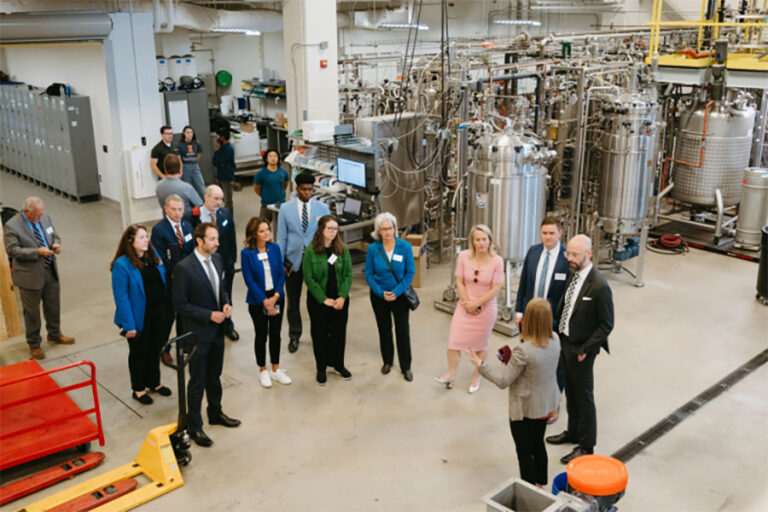
It begins with a question that sounds more like science fiction than science: if we can send people to space, why can’t we extend the healthy human lifespan? Peter Diamandis has spent his life pushing the boundaries of what’s possible—first with space, now with health. And his answer to that question is unequivocal: not only can we extend healthspan, but we are on the cusp of doing so at an unprecedented scale.
Hevolution, a Riyadh-based global nonprofit organization dedicated to advancing healthy longevity science and improving healthspan, has emerged as a major force in this movement. Diamandis, best known for founding XPRIZE—a global competition designed to drive radical breakthroughs in technology—and Singularity University, is not just an optimist—he’s an architect of the future. His latest initiative, the $101 million XPRIZE Healthspan, is designed to accelerate breakthroughs in healthy longevity science. In his new book, Longevity Guidebook, he doesn’t just present a vision of longer life—he provides a roadmap. “We are in the midst of a healthspan revolution that has the potential to cure and prevent most diseases—adding decades of youth for each of us,” he explains. And if there’s one thing he wants people to understand, it’s this: “Aging is a disease. I believe it is treatable. I believe we can treat it within our lifetimes. And in doing so, everything we know about human health will be fundamentally changed.”
At 63, Diamandis is deeply engaged in longevity research, closely monitoring his biological markers with the precision of a NASA mission as part of his commitment to understanding and advancing the science of aging. He highlights the importance of exercise as a foundational pillar of longevity, emphasizing its role in maintaining muscle strength and metabolic health. Beyond individual health, he sees a much larger shift underway—one that could redefine medicine itself. With the rapid progress in AI-driven diagnostics, cellular rejuvenation, and gene therapy, Diamandis believes we are approaching what he calls ‘longevity escape velocity’—a point where scientific breakthroughs in aging outpace the natural aging process. “For those in good health and with access to emerging technologies, I believe longevity escape velocity could become a reality by 2030,” he says, echoing the prediction made by Ray Kurzweil, his co-founder at Singularity University.
“In the next decade, I believe we will learn how to slow and perhaps stop or reverse aging. Hevolution and the XPRIZE Healthspan are helping drive this transformation, accelerating the breakthroughs that will redefine what it means to be human.”
Peter H. Diamandis, MD
This isn’t speculation—it’s already happening. AI is making it possible to detect diseases years before symptoms appear, allowing interventions long before traditional medicine would sound an alarm. Gene therapies are rewriting the rules of biology, targeting the fundamental mechanisms of aging rather than just its symptoms. “With AI-driven diagnostics, we can detect these conditions before symptoms appear,” Diamandis explains. “At Fountain Life, we built a diagnostic system that answers two critical questions: Is anything happening inside your body that you need to know about? And what’s likely to happen in the future, and how do we prevent it?”
While traditional healthcare funding focuses on treating disease, Hevolution is flipping the model—investing billions into preventative health, regenerative medicine, and healthspan research. “Instead of waiting for illness and trying to fight it, why not prevent it altogether? That shift is transformative,” Diamandis emphasizes. He also highlights the significance of Saudi Arabia’s leadership in this space: “Having the Global Healthspan Summit 2025 and Hevolution based in Riyadh is important because Saudi Arabia is formally backing health and AI. They are committed to advancing [healthy] longevity, and that kind of national commitment accelerates everything.” In the U.S., the average lifespan is 79, but healthspan—the years lived without chronic disease—is only 63. Hevolution aims to close that gap and push beyond it.

Diamandis sees this as a pivotal moment. Just as the private sector transformed space exploration, he believes healthspan will follow the same trajectory. “The real breakthroughs won’t come from governments or pharmaceutical giants weighed down by bureaucracy. They will come from visionary entrepreneurs leveraging AI, genetic science, and cellular medicine,” he asserts. XPRIZE Healthspan is designed to supercharge this ecosystem, bringing together the brightest minds to tackle aging at its core. “The day before something is a breakthrough, it’s a crazy idea. I believe these emerging companies will redefine healthcare, shifting us from sick care to true health optimization.”
But there’s still one major hurdle: changing the way people think about aging. For centuries, humans have accepted it as inevitable. Diamandis wants to rewrite that narrative. The science, he insists, is clear—”aging is a biological program that can be reprogrammed.” The only question is how quickly we can scale these interventions. Hevolution’s approach—funding cutting-edge research with a long-term global vision—makes it one of the most important players—if not the most important—in the field today.
Looking ahead, Diamandis envisions a world where health optimization is as routine as brushing your teeth. Where AI-driven diagnostics detect diseases before they manifest. Where gene therapies, stem cell treatments, and precision medicine keep people thriving well beyond what we consider a ‘normal’ lifespan today. And, perhaps most radically, a world where aging itself is seen as a medical condition—one that can be treated, delayed, or even reversed. “Five years from now, we will have a winner of the XPRIZE Healthspan competition who has been able to reverse the ravages of human aging in muscle, immune function, and cognition,” Diamandis states.
If this sounds like science fiction, consider this: just a few decades ago, space tourism was a fantasy. Today, it’s a reality. Diamandis doesn’t deal in impossibilities—he engineers breakthroughs. And with XPRIZE Healthspan now in motion, the future of longevity is not just an abstract concept. It’s an unfolding reality. The question is no longer if we can extend healthspan, but how soon we will make it available to everyone.









